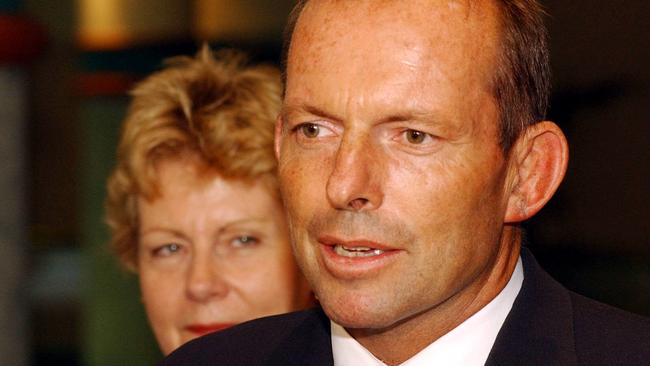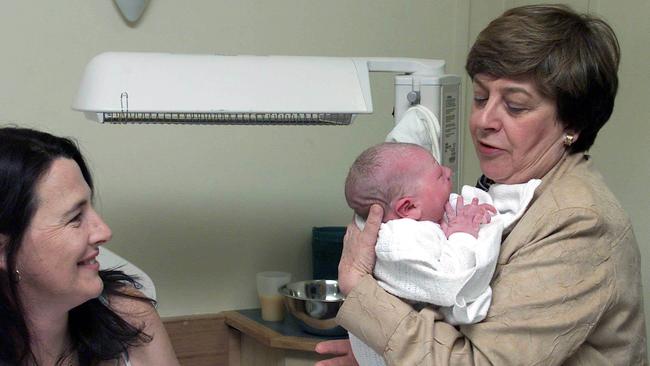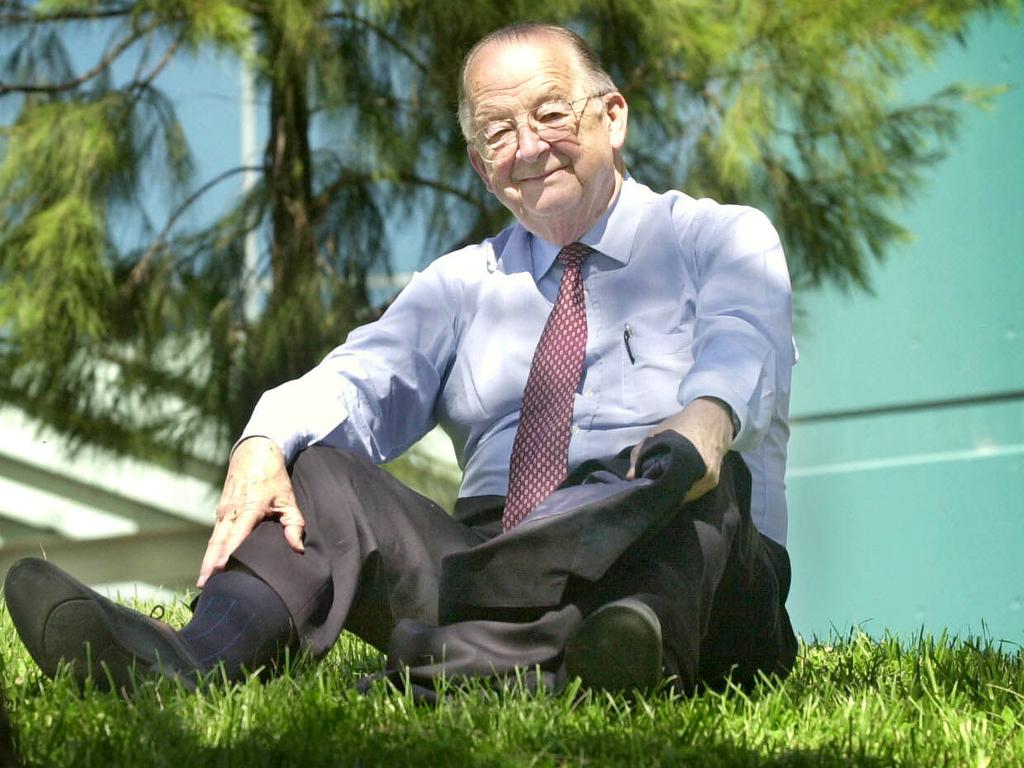2004 Cabinet Papers: Tony Abbott resisted states’ emergency rooms push
The Howard government faced a decline in GP clinics providing after-hours services, a huge overpayment from the Family Tax Benefit and a suite of disability reforms.

With a decline in GP clinics providing after-hours services, a huge overpayment from the Family Tax Benefit and a suite of disability reforms, the Howard government had to spend big to tackle their health and welfare problems in 2004, newly released cabinet documents show.
Between 2000 and 2003, the number of GP clinics offering after hours services declined by 15 per cent. The government had already tried to tackle this decline with telephone triage services, and by trialling different models for after-hours services.
Cabinet documents show that then-health minister Tony Abbott made a submission in which he said these prior efforts “have been small-scale pilots, with mixed success” that “have not stemmed the decline in after-hours access”.
He also accused state and territory governments of “running a political campaign against us” because they were “trying to deflect attention from problems of their own making”.
States and territories were arguing that patients who were less seriously ill and could have been seen by a GP were presenting to emergency departments and causing overcrowding. They argued the solution was after-hours GP clinics within public hospitals to which they could be redirected.
Mr Abbott recommended the approval of 50 new after-hours clinics that would be set up within public hospitals, other primary care facilities and as stand-alone services.
He saw his strategy as an opportunity to “expose the weakness in the arguments put forward by the states about the reasons for overcrowding in their emergency departments” as he viewed the overcrowding as due to a lack of hospital beds that states were being “disingenuous” about.
While the prime minister and cabinet supported the submission, finance did not, warning that by establishing after-hours services in public hospitals it could be seen as a tacit acknowledgment of the state and territory government’s assertions.
The cabinet ultimately agreed that Mr Abbott would be authorised to establish up to 10 after-hours GP clinics in public hospitals, primacy care facilities, and as stand-alone services as Mr Abbott recommended, albeit 40 fewer clinics.
At the same time, it was not quiet on the welfare front, with the government facing huge debt from overpayment of the Family Tax Benefit being incurred by some 650,000 families each year, largely due to families underestimating their income.
The cabinet had to consider measures to reduce $900m of outstanding debt arising from the overpayments.
Treasurer Peter Costello and family minister Kay Patterson proposed a range of measures in March 2004 including an education campaign to help families better understand the benefit, an option for families to “negotiate” their payment rate, and help for families to estimate their income.

They also proposed a “lump-sum” payment per child that could offset any overpayments, which they said would “provide a significant increase in assistance for families with children” and would eliminate more than half of the overpayments.
Mr Costello and Senator Patterson also sought to guard “against opportunistic use of the system” as they suggested some families treated the tax benefit as a no-interest loan. To fight this, they suggested greater debt recovery for overpayments larger than $5000.
The government went ahead with the lump-sum offset strategy, announcing a one-off $600 per child bonus in their May 2004 budget.
The cabinet also considered new measures for disability support and reforms to the Disability Discrimination Act. This included establishing a funding pool of $99.1m to stop the closure of disability employment services and increase the wages of people with disabilities working in them, and providing workers with an “access guarantee” so that “low productivity workers” would not lose their jobs.
Reforms to the DDA saw a bolstering of the obligation on employers “to make reasonable adjustments” for people with disability except when it would cause an “unjustifiable hardship” – the definition of which was broadened.
Then attorney-general Philip Ruddock noted in his submission that “industry groups have expressed concern with the concept of reasonable adjustments” but this was balanced by the expanded defences of unjustifiable hardship.
Mr Ruddock acknowledged disability group concerns about the expansion, but dismissed them as “the Productivity Commission has taken these concerns into account”.






To join the conversation, please log in. Don't have an account? Register
Join the conversation, you are commenting as Logout